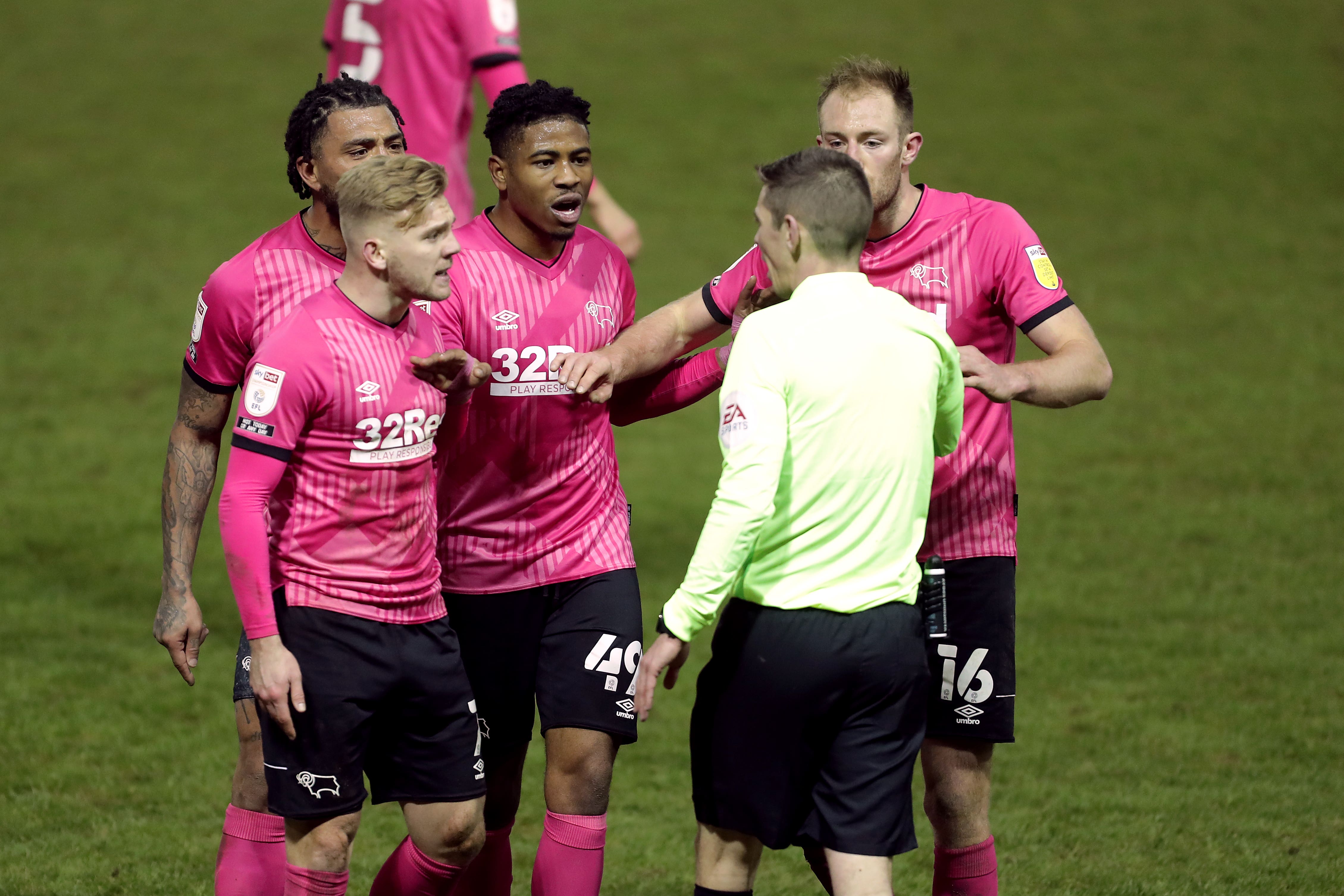Referees must no longer turn blind eye to ‘unacceptable behaviour’ – Howard Webb
A new ‘Participants’ Charter’ is being introduced with a view to improving behaviour.

Your support helps us to tell the story
From reproductive rights to climate change to Big Tech, The Independent is on the ground when the story is developing. Whether it's investigating the financials of Elon Musk's pro-Trump PAC or producing our latest documentary, 'The A Word', which shines a light on the American women fighting for reproductive rights, we know how important it is to parse out the facts from the messaging.
At such a critical moment in US history, we need reporters on the ground. Your donation allows us to keep sending journalists to speak to both sides of the story.
The Independent is trusted by Americans across the entire political spectrum. And unlike many other quality news outlets, we choose not to lock Americans out of our reporting and analysis with paywalls. We believe quality journalism should be available to everyone, paid for by those who can afford it.
Your support makes all the difference.Referees’ chief Howard Webb says standards of behaviour in the English game have been “allowed to decline” over a period of many years and insists it is vital a new code of conduct is followed by everyone to address it.
Officials are being empowered to issue cards when confronted by two or more players in the season ahead, while players and coaches who seriously or repeatedly abuse referees could face increased financial penalties from the Football Association.
Webb, the chief refereeing officer at Professional Game Match Officials Limited (PGMOL), says there has been a worldwide decline in referees entering the game, and that a collective effort from everyone involved in football to address poor behaviour is essential to tackling it.
“I think over a period of time we’ve seen a decline in some behaviours, both on the field of play and in the technical areas. It’s not exclusive to the English game, we’ve seen it around the world,” he said in an interview broadcast on PGMOL’s YouTube page.
“This has had knock-on effects. We’ve seen copycat behaviour at grassroots levels, and that’s resulted in people either quitting as referees or not choosing to take up the whistle.
“I think for too long we as match officials have not done well enough in dealing with behaviours that have been unacceptable. We have too often confused unacceptable behaviour as passion. We’ve turned a blind eye or a deaf ear.
“We’re trying to change behaviours that are exhibited in our sport that have been allowed to decline over the years, for many years, that have now seen a situation where we have a lot of referees who are facing really difficult experiences at grassroots level.
We have too often confused unacceptable behaviour as passion. We’ve turned a blind eye or a deaf ear
“Numbers are generally around the world declining and I think enough is enough. This is our chance to leave a legacy of improved behaviour.
“We’re being tasked as match officials to deliver change on the field of play by being resilient and robust and consistent with the way that we deal with unacceptable behaviour.
“We’re ready to do that for the good of the game but it’s absolutely important that all stakeholders in the game stand behind our officials and ensure that they feel empowered and supported when they’re dealing with these behaviours.”
The English football authorities have endorsed a series of measures designed to combat bad behaviour on and off the pitch, including a ‘Participants’ Charter’ for players and coaches, plus tougher sanctions on off-field issues such as football tragedy abuse.
While at grassroots level teams can now face points deductions where their players or staff are found to have seriously or repeatedly abused officials, there are no indications that the professional game will follow suit.
That is despite a number of serious incidents at top-flight level in the last year alone, with Liverpool boss Jurgen Klopp twice sanctioned for abusing officials and Fulham striker Aleksandar Mitrovic given an eight-game ban for pushing referee Chris Kavanagh.
Webb says all players and managers must be aware of the impact on their actions, especially on young people.
“So many young people’s eyes are on that field of play. They take their lead from what players do.” Webb added.
“These are role models whose behaviour they want to emulate, they look up to these people. If they see certain types of behaviour then it sets a really poor example for what is deemed acceptable in everyday life as well.
“Not wanting to put too much pressure and responsibility on players’ shoulders or officials or coaches who perform in that pressurised environment, but I think that we have to accept that when we get to a certain level we’re all role models.
“And we all have to understand that our behaviours do have an impact and therefore those behaviours that are exhibited have to be positive ones.”
The PA news agency understands the Professional Footballers’ Association has been involved in the meetings which led to the new charter and has actively helped to shape it.